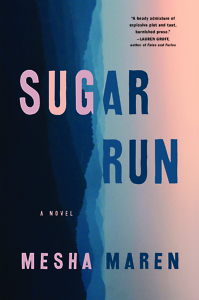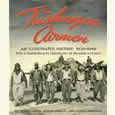The Weight of Mountains
Mesha Maren’s debut novel, Sugar Run, is a tale of suspense and gritty social realism
“All it takes is just one great hand. Just one night, with one sweet sugar run, and you’re hooked.” Mesha Maren’s debut novel takes its title from this euphemism for a lucky streak at the poker table, but she might just as well be writing about love or lust, booze or pills, freedom or belonging. Jodi McCarty, the protagonist of Sugar Run, gets hooked on them all, both before and after an eighteen-year prison sentence for manslaughter.

In parallel narratives, Maren describes Jodi’s doomed search for redemption after prison and the compulsions that landed her behind bars to begin with. In prose at once blunt and languid, Maren unflinchingly illuminates the harsh realities of life in rural Appalachia in a way that makes Jodi’s hopelessly quixotic and self-destructive choices seem as natural and understandable as the turning of the seasons. The fates that befall her in both her pre- and post-prison life are as tragic and unjust as they are inevitable.
Maren toggles between timelines in alternating chapters, narrating Jodi’s life before prison and her return to the world in 2008. The earlier chapters feature Paula, a reckless card sharp, addict, and stick-up artist who seduces Jodi as a naïve teenager into both a torrid love affair and a hell-bent road trip that’s roughly akin to what Thelma and Louise might have looked like if Louise had been a hustler and a dope fiend and Thelma had fallen for her best friend instead of Brad Pitt.
On the other side of her prison term, determined to track down Paula’s son Ricky and take him back with her to her family’s land in West Virginia, Jodi falls in with Miranda, a beautiful waif trying to get herself and her children away from her wayward husband, a floundering country singer. Miranda is desperately needy; Jodi desperately needs to be needed. In short order, the two become lovers, and Jodi becomes as determined to rescue and rehabilitate Miranda and her children as she is to satisfy her debt to Paula by stealing Ricky away from his abusive father and taking him to the mountains, where, she hopes, nature will heal the wounds of his childhood.
 When finally she gets back to West Virginia, however, Jodi discovers that the pastoral idyll she’s imagining has long since gone into foreclosure, the result of delinquent taxes, while the landscape surrounding it is tarnished by the twin blights of fracking and addiction. Determined to keep her dream of fashioning a family from this coterie of misbegotten cast-offs, Jodi finds herself increasingly desperate and reckless, taking one foolish risk after another and succumbing to old temptations, unaware until too late how much the present is beginning to resemble the past.
When finally she gets back to West Virginia, however, Jodi discovers that the pastoral idyll she’s imagining has long since gone into foreclosure, the result of delinquent taxes, while the landscape surrounding it is tarnished by the twin blights of fracking and addiction. Determined to keep her dream of fashioning a family from this coterie of misbegotten cast-offs, Jodi finds herself increasingly desperate and reckless, taking one foolish risk after another and succumbing to old temptations, unaware until too late how much the present is beginning to resemble the past.
Early raves for Sugar Run have praised the tension of its plot, but for my money this accomplished debut novel’s greatest strengths are Maren’s entrancing sentences and the complexity of her characters, who are so often reduced in the media to stereotypes and/or objects of pity. There are no heroes here, but Sugar Run’s fallen characters nevertheless earn our respect and sympathy thanks to Maren’s full-bodied exploration of their interior lives and the forces that have bent and broken them.
Despite her best intentions, Jodi struggles to avoid old mistakes but willfully surrenders to the same temptations that took more than half her life away from her. But Maren draws Jodi and Miranda and Paula so patiently and adroitly that even their worst choices seem perfectly rational, if not unavoidable. The intrusion of fracking upon the formerly pristine wilderness of Appalachia becomes a metaphor for the exploitation of the story’s fierce but vulnerable women—strong, but not strong enough to face down and overcome the cruelties of a merciless world. “For so many years the mountains had protected this place, the landscape keeping it safe for those who were willing to scrape out a life,” Maren writes. When those mountains are finally breached, the costs to both the land and its people are beyond reckoning.
The trials of Appalachia are not virgin territory for fiction writers, but Maren’s approach is insightful and original, refreshingly female but every bit as fierce and unflinching as her male forbears and peers. The result is a captivating, troubling, and timely debut from a writer to be reckoned with.

Ed Tarkington’s debut novel, Only Love Can Break Your Heart, was published by Algonquin Books in January 2016. He lives in Nashville.


